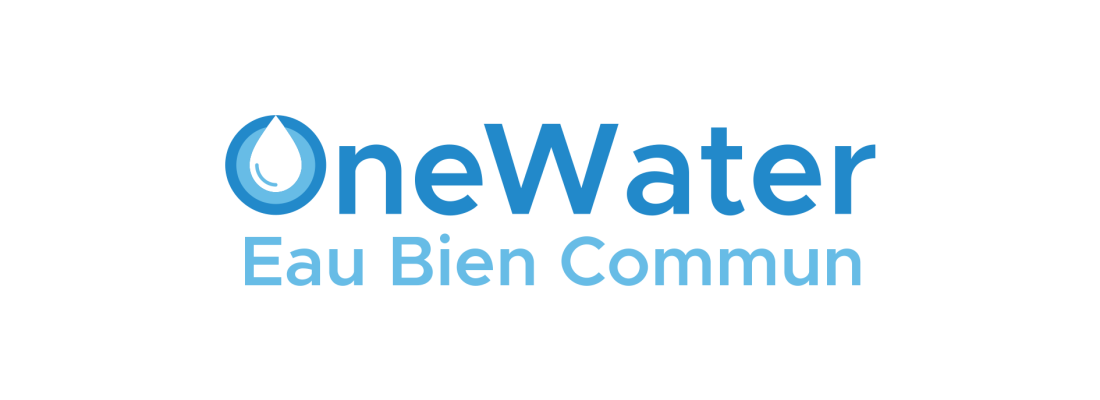Climate change and risks Reading time 3 min
OneWater, an exploratory Priority Research Programme and Infrastructure (PEPR) focused on a shared resource
Published on 16 March 2022

Water is a shared resource meeting essential needs of ecosystems and human populations alike. It should not be considered a commodity serving only a few purposes. Water resources are limited. Multiple factors impact their availability and quality, including climate change, environmental degradation, and human activities. There is now an urgent need to consider knowledge generated by researchers in the fields of environmental science, astronomy, the social sciences, chemistry, biology, mathematics, and even engineering. This knowledge must be harnessed to permit sustainable, efficient, and equitable water management able to preserve and share an unevenly distributed resource.
Variability of resource distribution, quality monitoring, land use planning, and sustainable, socially responsible development of water-dependent activities are some of the issues orienting OneWater activities. This PEPR is the most significant national hydrologic research initiative in over 20 years to address the crucial question of how planetary change affects the water cycle. It will seek to acquire a better understanding of complex coupled human-water systems; to generate the knowledge necessary for proposing fair, viable, and sustainable solutions; and to test these solutions in the field. By promoting an integrated, systematized approach, the OneWater exploratory PEPR, whose scope of operations is to encompass both mainland and overseas French territory, aims to facilitate the transitions essential for meeting the sizeable challenges associated with water resources in a changing world—through dialogue with resource managers, resource users, decision-makers, and other parties.
Organization of the scientific community for the production of new knowledge, involvement in student training, and collaboration with the social and economic spheres are the ambitions of OneWater, to permit an integrated approach to water-related issues in all their diversity and complexity, on every geographic and temporal scale. In order to carry out its actions, the exploratory PEPR will employ a set of tools that includes open calls for proposals and targeted projects, as well as the organization of conferences and discussions bearing on those challenges central to OneWater’s mission, with the participation of scientists, students, social and economic actors, and regional authorities. All of these initiatives will rely on existing research infrastructures and programmes. [2] To tackle new issues in the national, European, and global arenas, and in the spirit of open science, these initiatives will also contribute to the creation of a digital platform that will compile all available data on water.
The three steering institutions will be supported by ten others from the worlds of research and academia,[3] and by social and economic actors, to accelerate R & D and convert the knowledge amassed into concrete measures and solutions.
The first call for proposals issued by the OneWater exploratory PEPR will seek projects directed towards one of its six scientific challenges:
• Challenge 1—to anticipate changes affecting water resources and so enable appropriate regional adaptations
• Challenge 2—to define the ‘water footprint’ of environmental processes and human activities, accounting for water quality in addition to water transfers
• Challenge 3—to use water as an indicator of the health of the environment and human societies along the land-ocean aquatic continuum
• Challenge 4—to propose solutions enhancing the adaptability and resilience of coupled human-water systems in the face of planetary changes, and promote sounder, integrated practices
• Challenge 5 (integrative)—to guide our green transition towards a new form of resource governance, for a sustainable and resilient society
• Challenge 6 (integrative)—to make water-related data accessible and comprehensible to all, increasing people’s knowledge and informing their action
[1] Exploratory PEPRs target emerging fields of science or technology for French government coordination and support. They are financed through PIA4 research allocations and the France Relance economic recovery plan. Projects destined to become exploratory PEPRs are selected by an international jury through a rigorous process.
[2] OneWater will build on a constellation of observatories and research networks (e.g. AnaEE France, OHMs, OZCAR, O-ZNS, and RZA), infrastructures (e.g. Terra Forma), and platforms (e.g. Data Terra and Gaia Data).
[3] IFREMER, IRD, Météo-France, Université de Bordeaux, Université Claude Bernard Lyon 1, Université de Montpellier (MUSE I-SITE), Université Grenoble-Alpes, Université Rennes 1, Université de Strasbourg, and Université Fédérale Toulouse Midi-Pyrénées.
